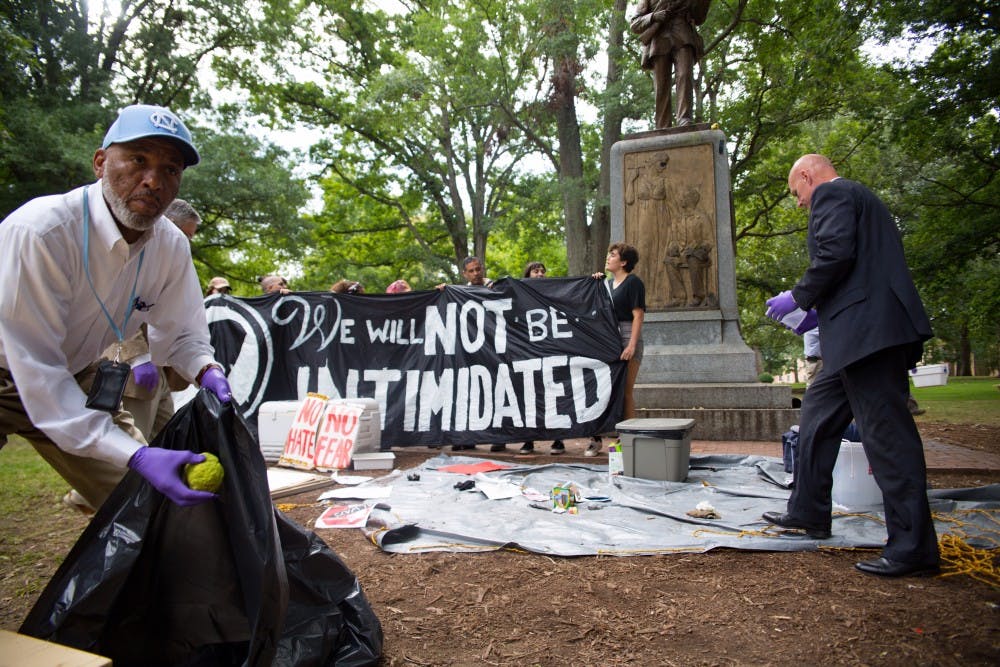For Campus Y Co-president Alexander Peeples, the recent push to remove Silent Sam has shown more than the power of unification; it has shown a university that is unwilling to represent the voice of the community.
UNC cited the Facilities Use Policy against signs on campus buildings as the reason for removing 12 banners hung by Campus Y. Peeples said the banners were advocating for Silent Sam’s removal and included political statements like “Black Lives Matter” and "There shouldn't be racism and hate on our campus."
Peeples, who is a columnist for The Daily Tar Heel, disputed the removal of the banners and said that another banner stating “Campus Y: The center for social justice at the University of North Carolina at Chapel Hill” was not taken down until he removed it himself.
“This was put up by us for over a week and no one took it down, despite the University claiming that they were just taking down the banners because of a content-neutral policy,” Peeples said.
Another free speech conflict arose last week when the UNC Department of Public Safety removed the signs and belongings of the protesters at the Silent Sam sit-in. The University claimed this removal was also a Facilities Use Policy issue, but the organizers of the sit-in argued it was an effort to disrupt their demonstration.
Peeples claimed that the University has not taken enough initiative to truly enact change, instead focusing on regulating the speech supporting that change.
“The issue of the banners is emblematic of the failure of leadership by the University more broadly,” Peeples said. “I think that the University has endorsed this problem of speech, but what they haven’t done is actually meaningfully contributed anything to it.”
Efforts to push for the removal of the Silent Sam statue have not ceased in the weeks following a rally at Silent Sam on Aug. 22. Campus groups, including Campus Y, UNC NAACP and the Students of Silent Sam Sit-In have publicly demanded the statue’s removal. Amidst all of this, questions about free speech rights and how they relate to these protests on campus have become increasingly relevant.
Tempers have flared nationwide since white supremacist protesters and counter-protesters clashed in Charlottesville, Virginia, last month over the city’s plan to remove a statue of Robert E. Lee. A protest in Durham just days after saw seven people arrested when protesters forcibly pulled down the Confederate Soldiers Monument.



